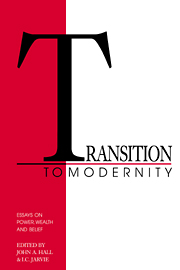Book contents
- Frontmatter
- Contents
- List of illustrations
- List of contributors
- Introduction
- PART I THE PRE-MODERN WORLD
- PART II TRANSITIONS TO THE MODERN WORLD
- PART III MODERNITY AND ITS DISCONTENTS
- 8 Science, politics, enchantment
- 9 Deconstructing post-modernism: Gellner and Crocodile Dundee
- 10 A methodology without presuppositions?
- 11 Gellner's positivism
- 12 Left versus Right in French political ideology
- 13 Property, justice and common good after socialism
- 14 Social contract, democracy and freedom
- 15 Thoughts on liberalisation
- 16 Peace, peace at last?
- Indexes
14 - Social contract, democracy and freedom
Published online by Cambridge University Press: 02 February 2010
- Frontmatter
- Contents
- List of illustrations
- List of contributors
- Introduction
- PART I THE PRE-MODERN WORLD
- PART II TRANSITIONS TO THE MODERN WORLD
- PART III MODERNITY AND ITS DISCONTENTS
- 8 Science, politics, enchantment
- 9 Deconstructing post-modernism: Gellner and Crocodile Dundee
- 10 A methodology without presuppositions?
- 11 Gellner's positivism
- 12 Left versus Right in French political ideology
- 13 Property, justice and common good after socialism
- 14 Social contract, democracy and freedom
- 15 Thoughts on liberalisation
- 16 Peace, peace at last?
- Indexes
Summary
Political liberty is good only so far as it produces private liberty.
Samuel JohnsonlWhile Dr Johnson's eighteenth-century optimism about human nature – the thought that Nature will rise up and … overturn a corrupt political system' – cannot be shared by those with experience of twentieth-century history, his concern for individual freedom/private rights will be shared by all those who believe in some modern version of classical liberalism. James Buchanan and Friedrich von Hayek give, for the public arena, priority to freedom. Buchanan thinks that with the help of a contractarian approach it is possible to arrive at a Constitution of Liberty without recourse to non-instrumental value judgements, while Hayek's evolutionary approach to the Constitution of Liberty acknowledges the necessity of taking a stand on value issues. Can a contractarian approach deliver the goods? What kinds of problems is it intended to solve, and what kinds of problems can it solve? What is the proper role of the State? Classical liberalism views the State as an instrument: ‘an instrumental State, one charged with the performance of a set of tasks which, however do not include responsibility for ultimate human fulfilment, or for the rule of righteousness’. But, how to define that ‘set of tasks’? Can the social-contract type of theory in combination with the democratic method help to secure freedom? What is the relationship between economic freedoms, civil liberties and political freedom?
- Type
- Chapter
- Information
- Transition to ModernityEssays on Power, Wealth and Belief, pp. 297 - 316Publisher: Cambridge University PressPrint publication year: 1992

